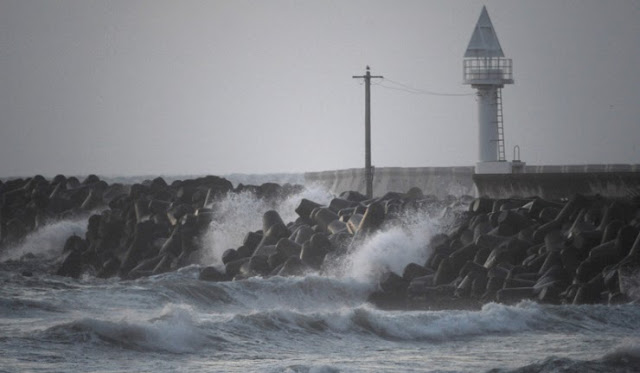Echo
of Fukushima reaches the US
The
Fukushima NPP continues to disturb the general public even almost
three years after the accident. New leaks of radioactive water beyond
the protective dam took place recently due to heavy rain. People give
less and less credence to nuclear experts’ assurances that the sea
was not polluted.
26
December, 2013
Meanwhile,
the US newspaper The Cape Cod Times reports that toxic leakage from
the NPP is approaching the US west coast. Seventy sailors from the
USS Ronald Reagan that took part in the rescue operation after the
accident are going to sue Tepco, the Fukushima NPP operator. The
sailors claim that the company did not warn them about all risks that
the crew could face.
The
aircraft carrier spent a month in the offing at the distance of ten
miles from the NPP in a spot of radioactive fallout. The crew
desalinated overboard water and drank it and used it for cooking,
which caused cases of cancer and even blindness.
Oceanic
pollution within 10 miles around the NPP is understandable. The main
part of nuclear disintegration products got into the water and not
into the air like in Chernobyl. Ocean currents carry harmful
substances far away. Even in other parts of the world fish and
seafood drawn from contaminated streams can be dangerous for humans,
Maxim Shingarkin, Deputy Chairman of the State Duma Committee for
Natural Resources says.
"Currents
in the World Ocean are so structured that the areas of seafood
capture near the US north-west coast are more likely to contain
radioactive nuclides than even the Sea of Okhotsk which is much
closer to Japan. These products are the main danger for mankind
because they can find their way to people’s tables on a massive
scale."
Contaminated
fish can swim anywhere, so fishing is not absolutely safe in any
region of the world any more. It is impossible to test the entire
catch for pollution, just as it is impossible to introduce a
universal ban on fishing. The Japanese government has just partially
banned fishing in the most dangerous areas. Vladimir Slivyak,
Co-chairman of the Ecodefence international ecology group is
speaking.
"The
Russian government planned to restrict fishing in the Far East. As far
as I know, no such restrictions have been introduced so far. Still it
is possible that some steps will be taken."
As
for atmospheric pollution, radio nuclides from Fukushima reached
California and Mexico 8 days after theaccident. Russia was not
affected, Maxim Shingarkin says.
"Air
emissions were not projected either on the Sea of Okhotsk, or
Sakhalin, or the Far East, or the Kuril Islands. So airlifting
cargoes does not seem dangerous so far. I mean so far because not all
the nuclear fuel has been taken out of the power generation units.
This means that radioactive emissions into the atmosphere are
possible as a result of heating."
It
took years after Chernobyl to make detailed conclusions about the
scale of nuclear pollution. We are having a similar situation with
Fukushima, Vladimir Slivyak believes.
"We’ll
probably know the consequences of this accident in 10-15 years. It is
clear that a large amount of fish, sea weeds and everything the ocean
contains has been polluted. It is clear that pollution spreads all
over Earth. It is clear that vast territories have been polluted in
Japan itself. All this is generally clear. But we need research to
provide more details and this will take a long time."
Meanwhile,
even now every blue-finned tuna fish drawn near the Californian coast
has signs of radioactive pollution. This information is provided by
one of the research portals (globalresearchreport.com). Most likely,
polluted water approached those parts because the level of
radioactive iodine in brown algae has risen over 200-fold. The level
of caesium-137 has risen all along the US west coast. Caesium-137 has
been found in local berries and mushrooms. Local residents often
report the deaths of birds. Radioactive nuclides have even reached
the shores of Alaska where the population of the sock-eye salmon has
dropped dramatically. Some experts believe that we can expect more
consequences of the accident at the Japanese NPP.
Boris
Pavlischev
The
headline from ENENews is -
Russian
Experts: Fukushima pollution spreads all over Earth, clearly a large
amount of fish, seaweeds, and everything in ocean has been polluted —
These products are the main danger for mankind as they can end up
being eaten by people on a massive scale




No comments:
Post a Comment
Note: only a member of this blog may post a comment.